Table of Contents
Sleep Test
This Sleep Test by Thorne helps you discover why you’re having trouble sleeping. This at-home saliva sleep test tracks hormone fluctuations that regulate the sleep-wake cycle. Sleep Test results include a personalized health plan.
You should take this sleep test if you
- Have trouble falling asleep
- Wake up during the night
- Wake up too early
- Don’t feel rested after sleeping
- Feel tired but wired
- Experience mid-day energy dip
What you’ll discover in your Sleep Test

Measures
Your personal biomarker values are displayed on an easy-to-read dashboard with descriptions of what each biomarker value means for you.

Analysis
Using your biomarkers, we provide detailed insights to help identify potential health risks or specific areas of improvement. Insights are generated using Thorne’s Health Intelligence platform.

Improvement Plan
Based on your unique results, a comprehensive improvement plan with diet, activity, and supplement recommendations is generated.
What the Sleep Test measures
How the Sleep Test works

1 • Order and activate
After your Sleep Test purchase is complete, everything you need for your at-home test is delivered to your door. Use the activation code located on the back of the test kit to activate your test on thorne.com and complete your health profile.

2 • Collect samples and send
Referencing the directions booklet included in your test kit, complete your sample collection from the comfort of your home. Use the prepaid shipper to mail your samples directly to the laboratory.

3 • Receive results & recommendations
Your results will be reviewed by an independent, board-certified physician. Once you’ve sent your samples to the lab, after 8-10 business days you will receive your results with meaningful insights and personalized recommendations by one of our health coaches to promote your health and wellness.
Potential Indicators
When your melatonin level does not rise as it should at night, you might experience some of the following symptoms:
- Difficulty falling asleep at night
- Waking up during the night
- Waking up too early
- Not feeling rested
- Daytime tiredness or sleepiness
- Insomnia
When your cortisol level follows an abnormal pattern, you might experience some of the following symptoms:
- Disrupted or poor sleep quality
- Feeling “tired but wired”
- Anxiety
- Irritability
- Getting sick more frequently
- Pain/inflammation
- Poor digestion
- Food cravings
- Weight gain
Sleep Test 101
Aspects of your sleep test cycle
An estimated 60 million Americans persistently suffer sleep deprivation. And 70 percent of adults experience enough daily stress to the point it disrupts their nightly sleep. To better understand sleep troubles, it’s important to know how your body’s sleep cycle works.
The alternating cycle of sleep and waking is directly related to the levels of two key hormones: melatonin and cortisol. Understanding the fluctuations of these two hormones during the day and how they relate to one another can help you determine why you are experiencing difficulty sleeping.
How the two biomarkers we measure impact your health
Melatonin
Melatonin, the hormone that helps regulate the body’s internal biological clock, is produced in the pineal gland, a pea-sized gland in your brain. During the day, the pineal gland is inactive, but when the sun goes down, it becomes activated and begins to produce melatonin. Typically, your melatonin level peaks around bedtime, stays elevated throughout the night, and then falls back to its daytime level in the morning.
Melatonin is known as the “Dracula of hormones” because your body naturally produces melatonin in response to darkness, and production is “shut off” by bright light. The feedback between your body and the environment is the primary way your body knows when it should be asleep or awake. In other words, your melatonin level directly impacts your sleep cycle by inducing and maintaining normal sleep.
If melatonin does not rise properly at night, or if its production is disrupted by light or other factors, then you can experience the symptoms of sleep deprivation.
A low level of melatonin in the evening/night is related to the following symptoms: difficulty falling asleep at night, waking up during the night, waking up too early, not feeling rested, and daytime tiredness or sleepiness.
On the other hand, if your melatonin level is higher than the normal range in the morning/daytime, then you can experience fatigue, grogginess, or reduced core body temperature.
Many things can disrupt your sleep cycle, including stress, dietary factors, medications, the environment, your work schedule, and the amount or timing of light exposure ‐ including exposure to light from blue screens.
Cortisol
If melatonin is the “nighttime” hormone, then cortisol can be thought of as your “daytime” hormone. It is a key adrenal hormone that balances melatonin. Your cortisol level should be highest shortly after waking up and should then fall throughout the day. If cortisol does not follow its normal cycle, then your sleep and health can be adversely affected.
Cortisol plays many roles in the body, but it has a special relationship to sleep. Cortisol follows a cycle that is opposite of melatonin’s and, in this role, it is responsible for signaling the body to be awake and responsive. Your cortisol level should be at its lowest late at night (when melatonin levels are high) and should have a peak shortly after you wake up in the morning.
The morning peak of cortisol helps “prepare you for the day” by:
- Raising your blood sugar, giving you energy, and probably making you hungry for breakfast
- Increasing your metabolism and getting you ready to be active
- Preparing you for the upcoming stressors of the day
Cortisol’s daily rhythm can become unbalanced due to chronic stress related to emotions, lifestyle, diet, health issues, overtraining, and other causes. Although there are more than one kind of abnormal pattern, the most common abnormal patterns for cortisol are explained below.
When cortisol’s level is too high, then your body feels “on” all the time. You can have disturbed sleep, excessive hunger, weight gain, and an anxious mood. A too-elevated level of cortisol can impair your body’s ability to absorb nutrients from food because cortisol tells your body to stop producing the enzymes needed for digestion.
A consistently clinically high level of cortisol can signal a medical condition that should be managed by an endocrinologist.
When cortisol’s level is too low, it could indicate that your adrenal glands are persistently depleted and unable to meet the demands that your body puts on them. As a result, you can feel fatigued all the time, have low mood, get sick more frequently, have challenges with pain and inflammation, and have a hard time responding to normal stress.
If your cortisol level is abnormally low persistently, then it can be a sign of a medical condition that should be managed by an endocrinologist.
Warnings
Sleep is a complex health concern and can be impacted by several factors. While this sleep test is an important tool that gives you personalized insight into key hormones that impact sleep, there may also be other factors that are contributing to sleep problems. Therefore, we always encourage you to consult a health-care practitioner if you suspect a problem or concern with your sleeping habits.
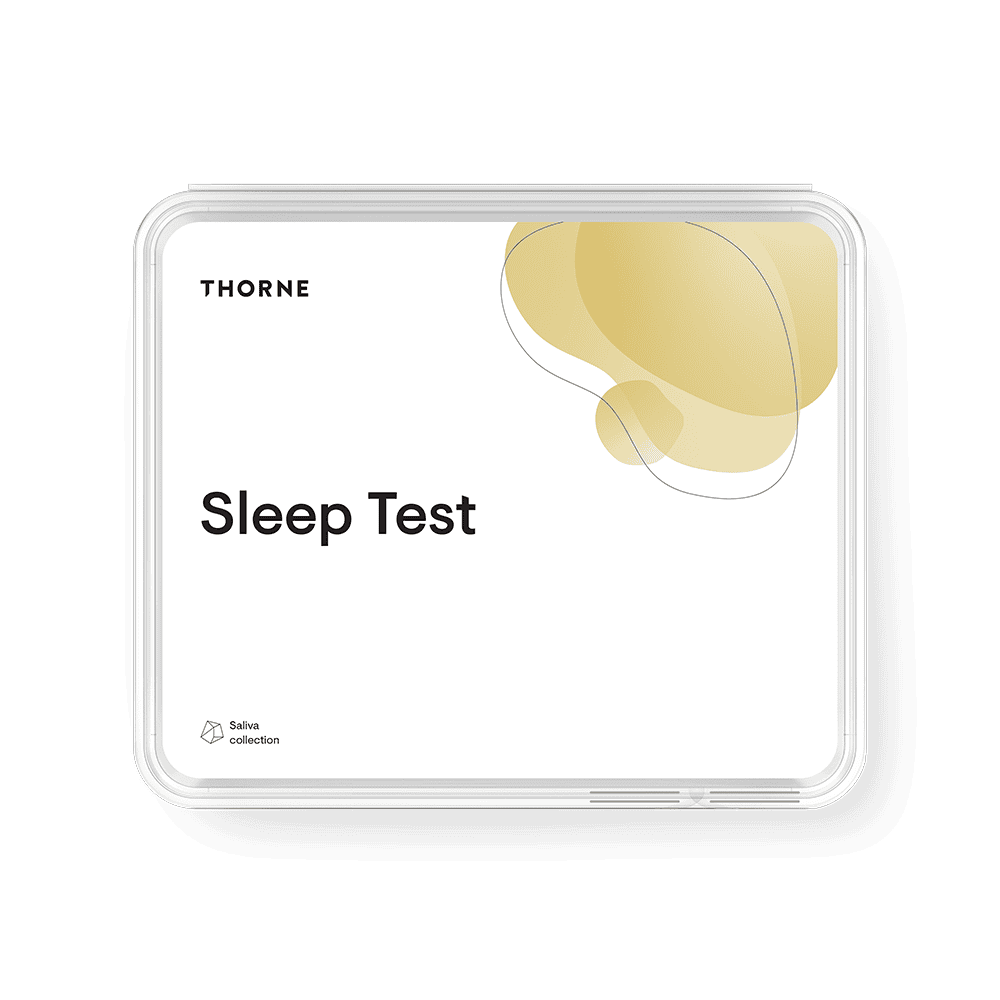
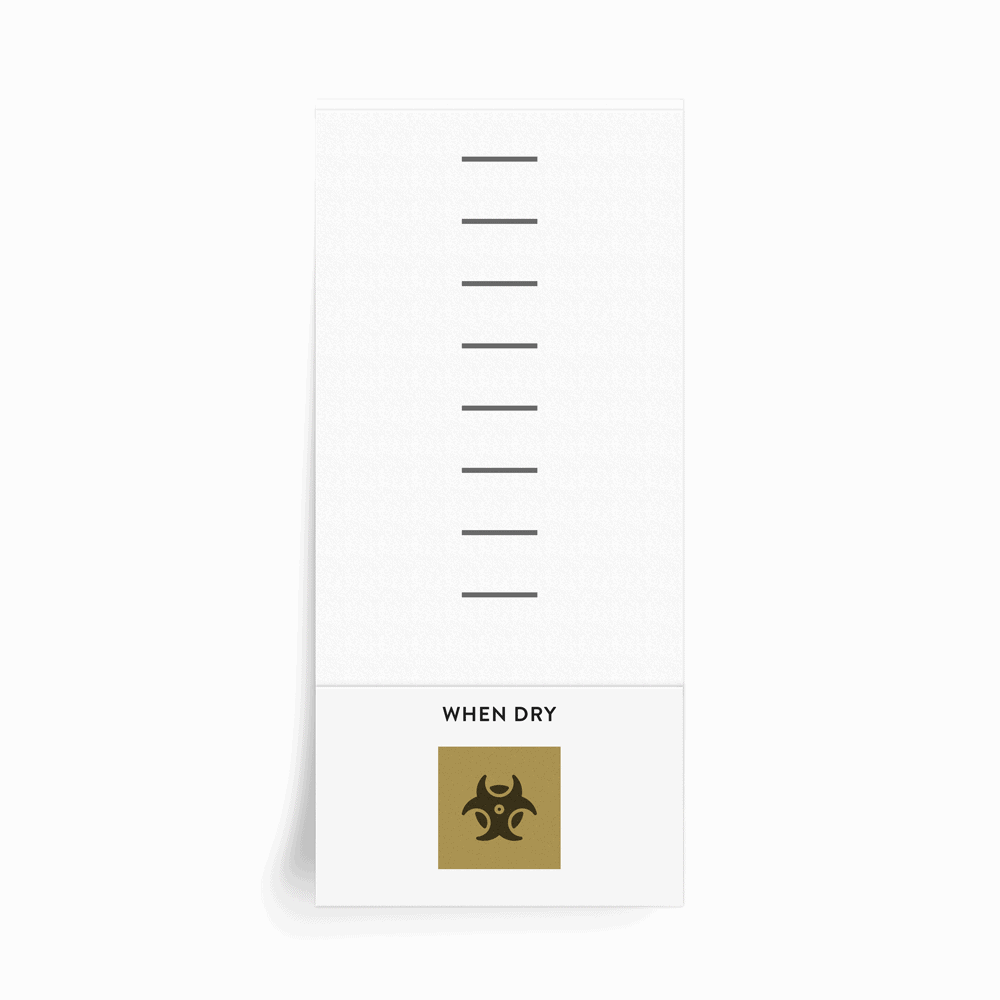
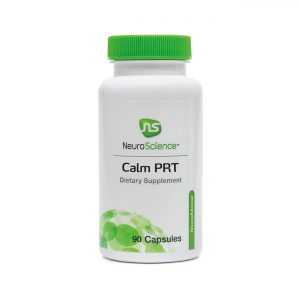

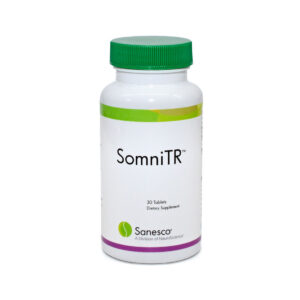

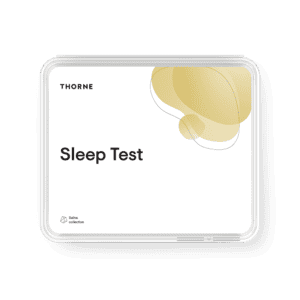
Reviews
There are no reviews yet.